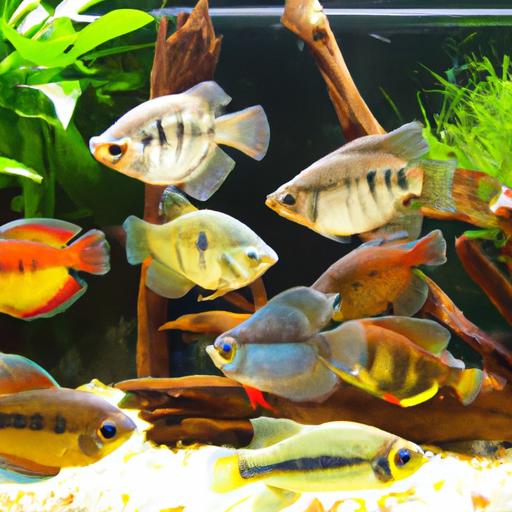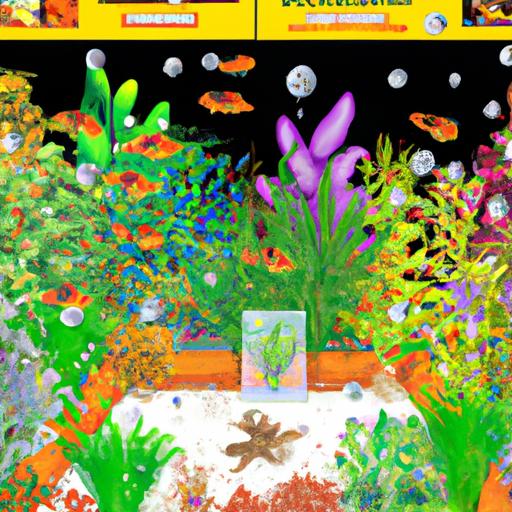
The World of Freshwater Shrimp: Care Essentials
Discover the essential care tips for freshwater shrimp in “The World of Freshwater Shrimp: Care Essentials” article. Ensure your shrimps thrive!
Introduction
Are you captivated by the mesmerizing beauty of freshwater shrimp? These little aquatic creatures can bring life and vibrancy to any aquarium. However, to ensure their well-being and longevity, it is crucial to understand the care essentials that go into maintaining a healthy environment for freshwater shrimp. In this article, we will delve into the world of freshwater shrimp and provide you with all the necessary information to keep your shrimps thriving.
Care Essentials for Freshwater Shrimp
Tank Setup and Requirements
When it comes to setting up a suitable habitat for your freshwater shrimp, certain factors must be considered. Firstly, the size of the tank is crucial. A larger tank provides more stability and allows for better water quality management. Additionally, maintaining stable water parameters, such as temperature, pH, and hardness, is vital for the well-being of your shrimp.
To ensure optimal conditions, a reliable filtration system and proper water circulation are essential. Shrimp thrive in clean water, so adequate filtration helps remove debris and waste, promoting a healthier environment. Moreover, incorporating a suitable substrate and decorations, such as rocks or driftwood, will provide hiding places and create a natural habitat for your freshwater shrimp.
Feeding and Nutrition
Proper nutrition is key to the overall health and vitality of your freshwater shrimp. Understanding their dietary needs is crucial for their growth and reproduction. A balanced diet should consist of both plant matter and protein-rich foods. High-quality shrimp pellets or flakes, supplemented with occasional treats like blanched vegetables or algae wafers, can ensure a well-rounded diet.
Feeding frequency and portion sizes should be carefully considered. It is generally recommended to feed your shrimp small amounts several times a day, as they are grazers by nature. Overfeeding can lead to water quality issues and negatively impact the health of your shrimp.
Water Quality Maintenance
Maintaining optimal water quality is of utmost importance in freshwater shrimp care. Regular water testing allows you to monitor parameters such as ammonia, nitrite, nitrate, and pH levels. This helps identify any potential issues and take appropriate measures to rectify them promptly.
Performing regular water changes is crucial for removing accumulated toxins and maintaining stable water conditions. The frequency of water changes may vary depending on the size of your tank and the number of shrimp. It is generally recommended to change approximately 10-20% of the water every week.
Additionally, the use of water conditioners and additives can help neutralize harmful chemicals, remove chlorine, and improve water quality. However, it is important to follow the manufacturer’s instructions and use these products in moderation to avoid any adverse effects on your freshwater shrimp.
FAQ about Freshwater Shrimp Care
Can different shrimp species be kept together?
While it is possible to keep different shrimp species together, it is important to consider their compatibility. Some species may exhibit aggressive behavior towards one another or have specific environmental requirements. It is advisable to research the specific species you intend to keep and ensure they can coexist harmoniously.
How do I prevent shrimp diseases?
Maintaining a clean and well-maintained aquarium is key to preventing shrimp diseases. Regular water testing, proper filtration, and appropriate feeding practices play a crucial role in keeping your shrimp healthy. Additionally, quarantining new shrimp before introducing them to your main tank can help prevent the spread of potential diseases.
What is the ideal temperature range for freshwater shrimp?
The ideal temperature range for most freshwater shrimp species is between 72°F and 82°F (22°C – 28°C). However, it is essential to research and understand the specific temperature requirements of the shrimp species you plan to keep, as some species may have more specific temperature preferences.
How can I control algae in a shrimp tank?
Algae growth is a common occurrence in shrimp tanks, but with proper management, it can be controlled. Introducing algae-eating shrimp, such as Amano shrimp or certain species of dwarf shrimp, can help keep algae growth in check. Additionally, ensuring proper lighting duration, maintaining a balanced nutrient level, and keeping a clean tank can all contribute to controlling algae growth.
Conclusion
In conclusion, caring for freshwater shrimp requires attention to detail and a thorough understanding of their specific needs. By providing a suitable tank setup, balanced nutrition, and maintaining optimal water quality, you can create a thriving environment for these captivating creatures. Remember to conduct thorough research on the shrimp species you plan to keep and always prioritize their well-being. Embrace the fascinating world of freshwater shrimp and witness the joy they bring to your aquarium. Happy shrimp keeping!































